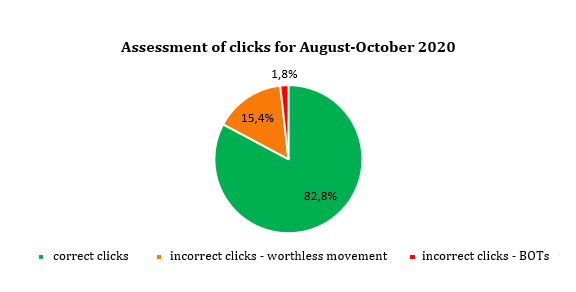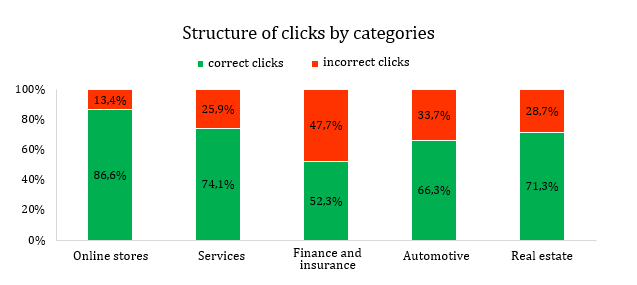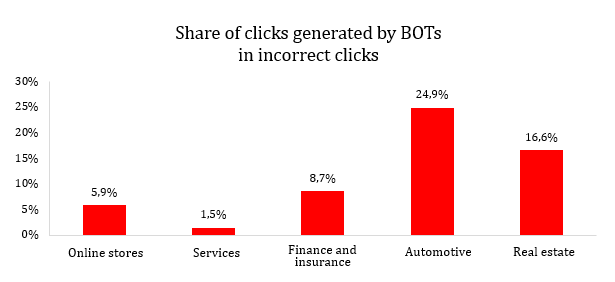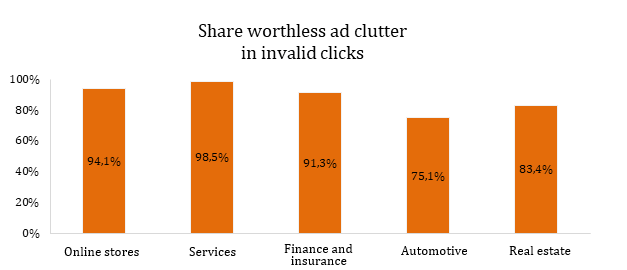Ad Frauds Barometer
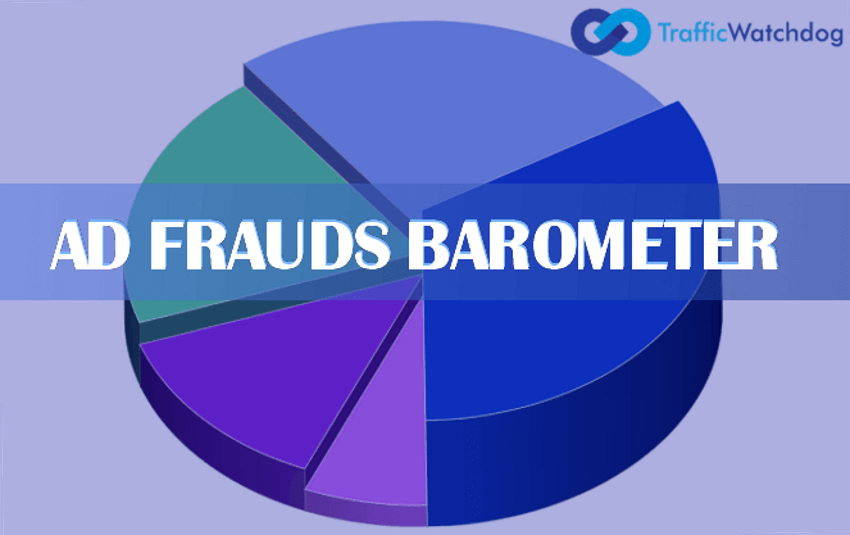
source: own elaboration
When talking to marketers, we often meet with low awareness of the risks associated with running advertising campaigns on the Internet. Publications on ad frauds on the Polish market are still rare, so we decided to contribute in changing this state of affairs and start a periodic report on the level of advertising fraud. And that's how, in a nutshell, the concept of the Ad Frauds Barometer was created. We want to provide advertisers with additional knowledge supported by the analysis of reliable data - because what can better make people aware of the problem of marketing fraud?
In our first issue of the Ad Frauds Barometer, we'll look at the scale of invalid clicks in CPC campaigns. According to the latest research conducted by GroupM, the participating marketers determined that campaigns based on cost per click settlements carry a moderate ad fraud risk (only 12% of them described them as risky). And what do we see in real data? We took a closer look at 30 million clicks made from August to October 2020 on over 300 websites from various industries.
Looking at the problem globally, 17.2% of clicks in the analyzed period should be considered invalid. When determining what an invalid click is, we used the standards set by IAB, according to which invalid clicks should be considered clicks generated by both users (people) and various types of bots and machines that are designed to manipulate click activity measures or affect incorrect cost settlements campaign. Incorrect clicks should also include situations in which the user has no intention of entering the website, but is still redirected to it (accidental clicks, auto-clicks, etc.). In the chart above, we divided incorrect clicks into those generated strictly by BOTs and worthless clicks made by users - sometimes they are accidental clicks, and sometimes actions of unfair competition (e.g. clicking ads). The data shows that this second category of clicks is the biggest problem today, because as much as 15.4% of clicks are worthless human clicks. Clicks generated by BOTs constitute less than 2% of all clicks settled in the CPC model.
The situation looks even more interesting if we look at the share of incorrect clicks by industry. In our Ad Frauds Barometer, we distinguished as many as five, these are: online stores, services, finance and insurance, automotive and real estate. For some of us, this is probably not a surprise - the finance and insurance sector is the most exposed to fraudster attacks, as much as 47.7% of traffic is fake clicks (bots or users generating worthless traffic). In this context, the results of the automotive industry look a bit better, but we still have a very high share of incorrect clicks, as much as 33.7%. In services and real estate, every fourth click ends up in the bin. Against this background, online stores fare the best, in the analyzed period “only” 13.4% of CPC traffic should be considered incorrect.
Following the industry footprint, we looked at the share of clicks generated only by BOTs in relation to all invalid clicks. In this respect, the most vulnerable industry is the automotive industry, every fourth invalid click was generated by BOT! The second category that is heavily attacked by BOTs is the real estate sector, the share of fake clicks generated in this way was as high as 16.6%. Interestingly, finance and insurance, the sector most exposed to incorrect clicks, still has a high, but still much lower share of BOTs (8.7%).
By changing the approach to incorrect clicks, we can see that in the service sector and in online stores, we deal mainly with the phenomenon of generating worthless clicks by people - 98.5% of incorrect clicks in services are just worthless ad clicks, in online stores the mentioned ratio is 94, 1%. What could be behind it?
Certainly, one of the reasons for such high values are the actions of unfair competition, which often boil down to clicking ads of companies operating in the same industry. This type of ad fraud is especially dangerous for websites that have a relatively small advertising budget and have a high price per click. In this case, a few dozen clicks a day are enough to block the advertising of your competitors and expose them to considerable losses. The problem basically affects everyone, but it is especially visible in industries such as roadside assistance or specialized legal services. Another reason may be, for example, mismatched campaigns that generate random user inputs.
We hope that we have provided you with some interesting information that, on the one hand, will help you take a closer look at your campaigns in your businesses, and on the other hand, will make you return to our Ad Frauds Barometer. In subsequent editions we will look at other settlement models (e.g. CPL), we will also check how the scale of the phenomena presented here changes over time. Please look forward to it!

